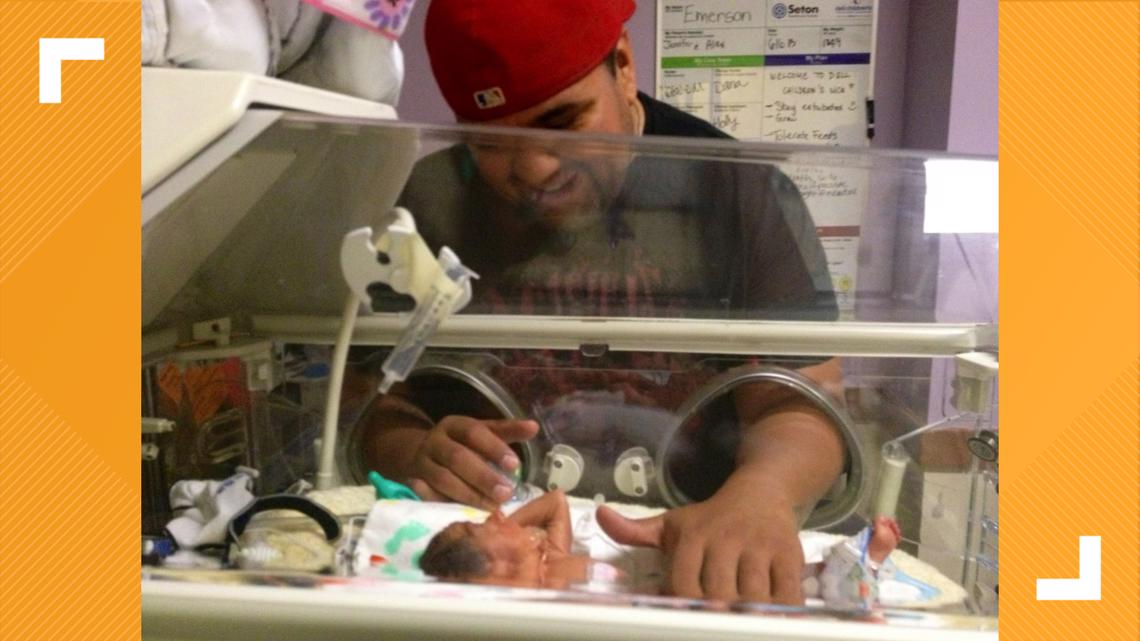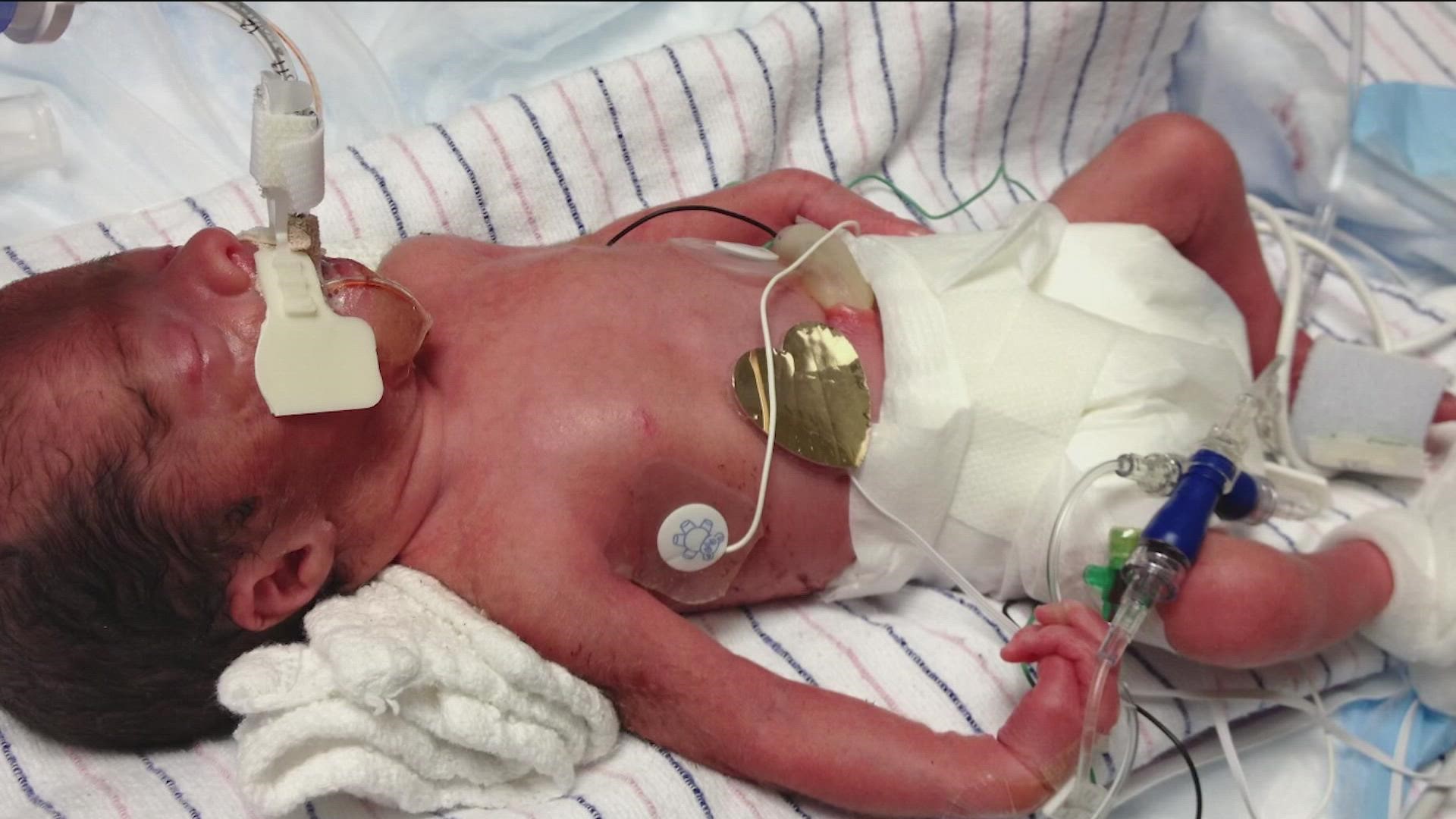KYLE, Texas — A report by March of Dimes gave Texas a "D" grade for its number of preterm births. This is just below the grade March of Dimes gave the U.S., a "C-."
The report said that in 2020, the percentage of babies born early was 10.8%, down slightly from 2019 at 11%.
Alex Zavala's daughter, Emerson, was one of those babies. She was born three months before her due date and weighed two pounds and five ounces.
"She was so tiny and fragile," Zavala said. "I didn't think she was going to make it."


After 67 days in the NICU, the family was finally able to take Emerson home.
"It was the happiest day of our lives," Zavala said. "But also the most stressful because we no longer had the support of the NICU doctors and the NICU staff. A lot of times for NICU dads, stress levels actually go up because, now ... everybody was relying on me once we came home. That's pretty terrifying."
Thankfully, they were able to adjust and Emerson is now a healthy 9-year-old girl.
Zavala isn't the only one who's gone through this. Recently, preterm birth rates have increased.
Dr. Emre Seli, March of Dimes' chief scientific officer, said the state's high uninsured rate is a reason why.
"We believe that the way the care is delivered, as well as access to care ... before pregnancy, during pregnancy and immediately after pregnancy [is connected]," Seli said.
Seli added that the preterm birth rate among Black women is 41% higher than the rate among all other women.
"They may not be receiving the care that they deserve," he said. "Both in the delivery aspect and the quality of the care aspect. Their underlying cardiovascular issues could be contributing in part, and we believe systematic racism may have a role in this."
March of Dimes said Medicaid expansion in the state and the passage of Medicaid coverage for doula care could help improve the health of both moms and babies.
PEOPLE ARE ALSO READING:

